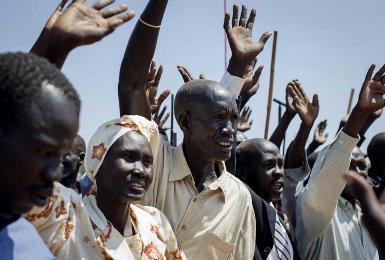Sudan to establish popular committees in Abyei
February 23, 2018 (KHARTOUM) – The Sudanese committee for the administration of Abyei area said it would form more than thirty popular committees to help to implement government plans in the contested region.

He pointed out that the popular committees would help government bodies and assist maintaining security as well as activating youth, women and students activities in Abyei.
Musa further stressed the security and humanitarian situation in Abyei are stable.
Ownership of Abyei, a border region disputed by Sudan and South Sudan, remained contentious after the world’s youngest nation split from Sudan in 2011.
There is no joint administration between Sudan and South Sudan, as the Ngok Dinka refuse the formation of Abyei Area Administration and the Legislative Council. Instead, they call to hold a referendum without the Sudanese pastoralist Misseriya.
Now there are two committees one for the Misseriya appointed by the Sudanese government and another for the Ngok Dinka appointed by Juba government.
On 27 June 2011, the Security Council, by its resolution 1990, responded to the urgent situation in Abyei by establishing the UNISFA.
UNISFA’s establishment came after Sudan’s government and the Sudan People’s Liberation Movement (SPLM) reached an agreement in Addis Ababa, Ethiopia, to demilitarise Abyei and let Ethiopian troops monitor the area.
The Comprehensive Peace Agreement (CPA) provides that the contested territory remains part of the north until the organisation of a referendum determines its fate.
The difference over who will participate in the referendum prevents the two countries from holding the agreed referendum.
However, the Dinka Ngok organised a unilateral referendum from 27to 29 October 2013 to say they want to join the Republic of South Sudan.
Khartoum, Juba, the African Union and the international community refused to recognise the outcome of the vote.
(ST)
